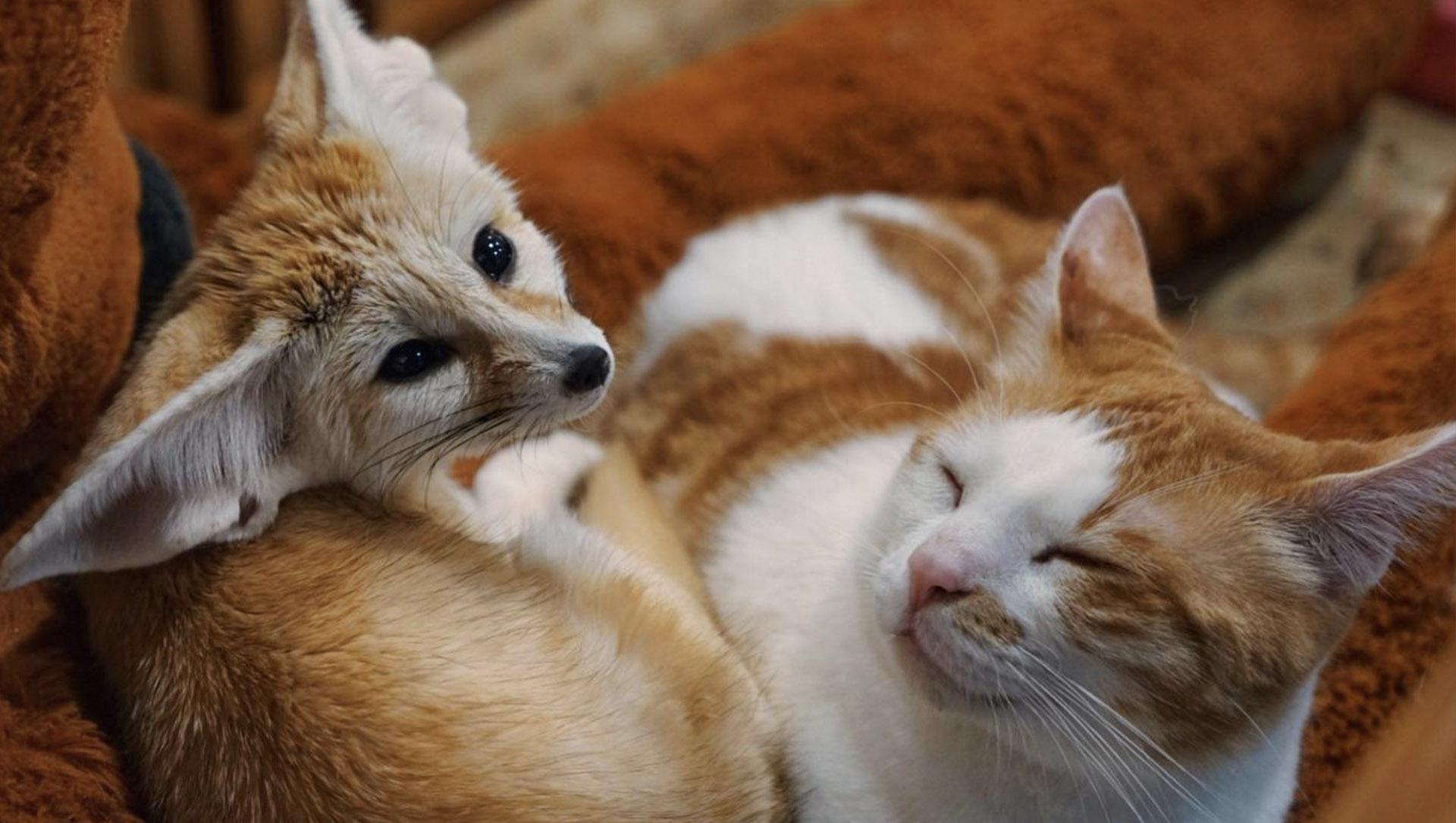As soon as I walked into Little Zoo Cafe, located in Siam Square Soi 11 in Bangkok’s Pathum Wan district, a lively yellow-crested cockatoo named “Heng Heng” — which means “lucky lucky” in Thai — greeted me by hurling a sock in my direction.
Heng Heng and I then proceeded to play a friendly game of catch. “Mommy,” he barked at me (yes, cockatoos can be taught to speak) when I got distracted by three corgis that came running down the stairs from the second floor.
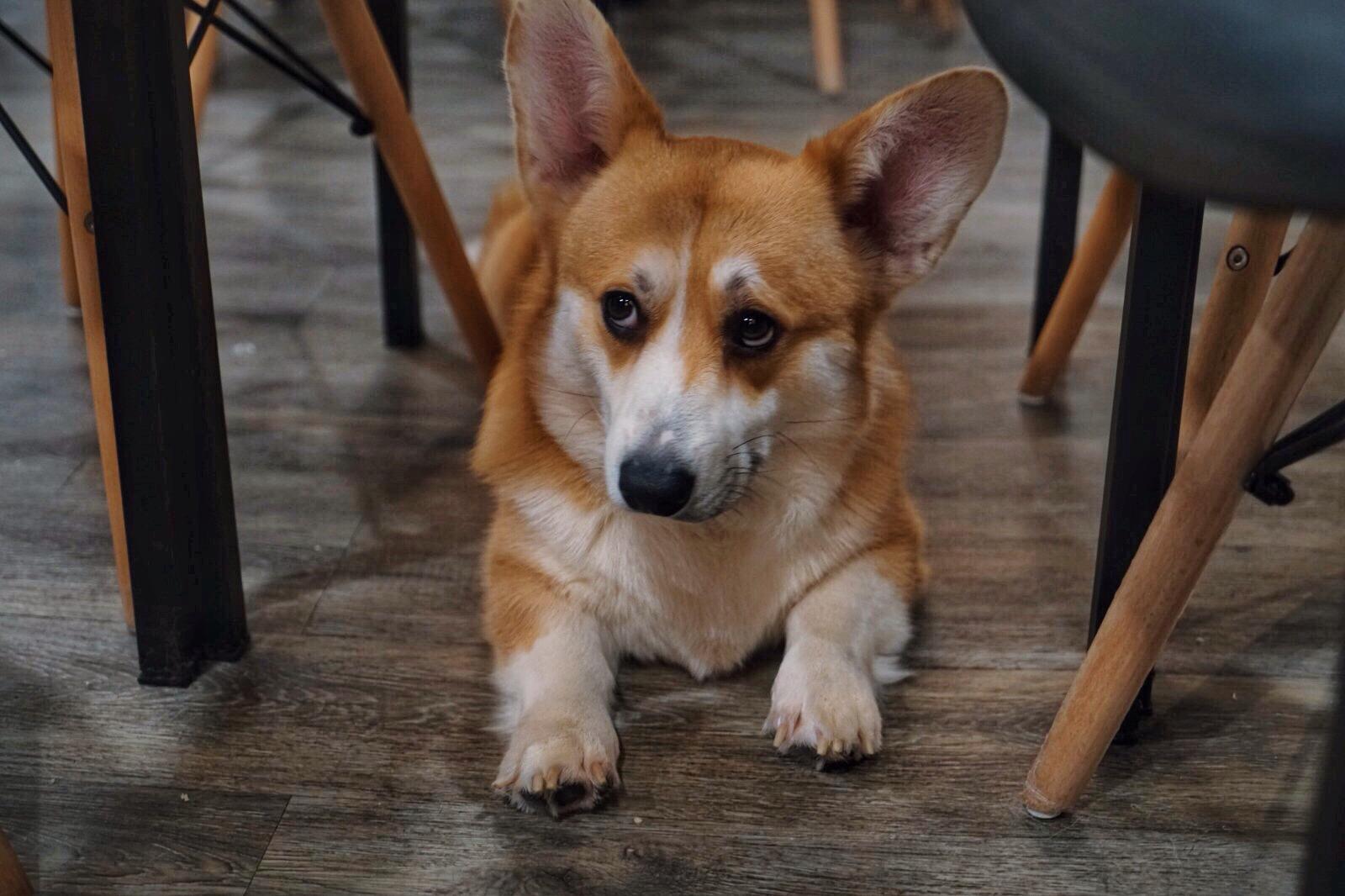
For THB390 (approx. US$12) — or THB120 (approx. US$9) for kids under 130 centimeters — visitors to Little Zoo Cafe get to hang out with the animals housed in the building for as long as they want. A drink, and your choice of a dessert or a souvenir, are also included in the cost of entry.
Visiting areas are divided into two floors. The ground floor is where drinks and snacks are made. Only more “mainstream” animals like the corgis — who are allowed to roam free across both floors — the cockatoo, and hamsters hang out there.
The more exotic animals, however, are on the second floor. Visitors are required to change into provided socks (yes, they’re clean) and slippers in order to go upstairs.
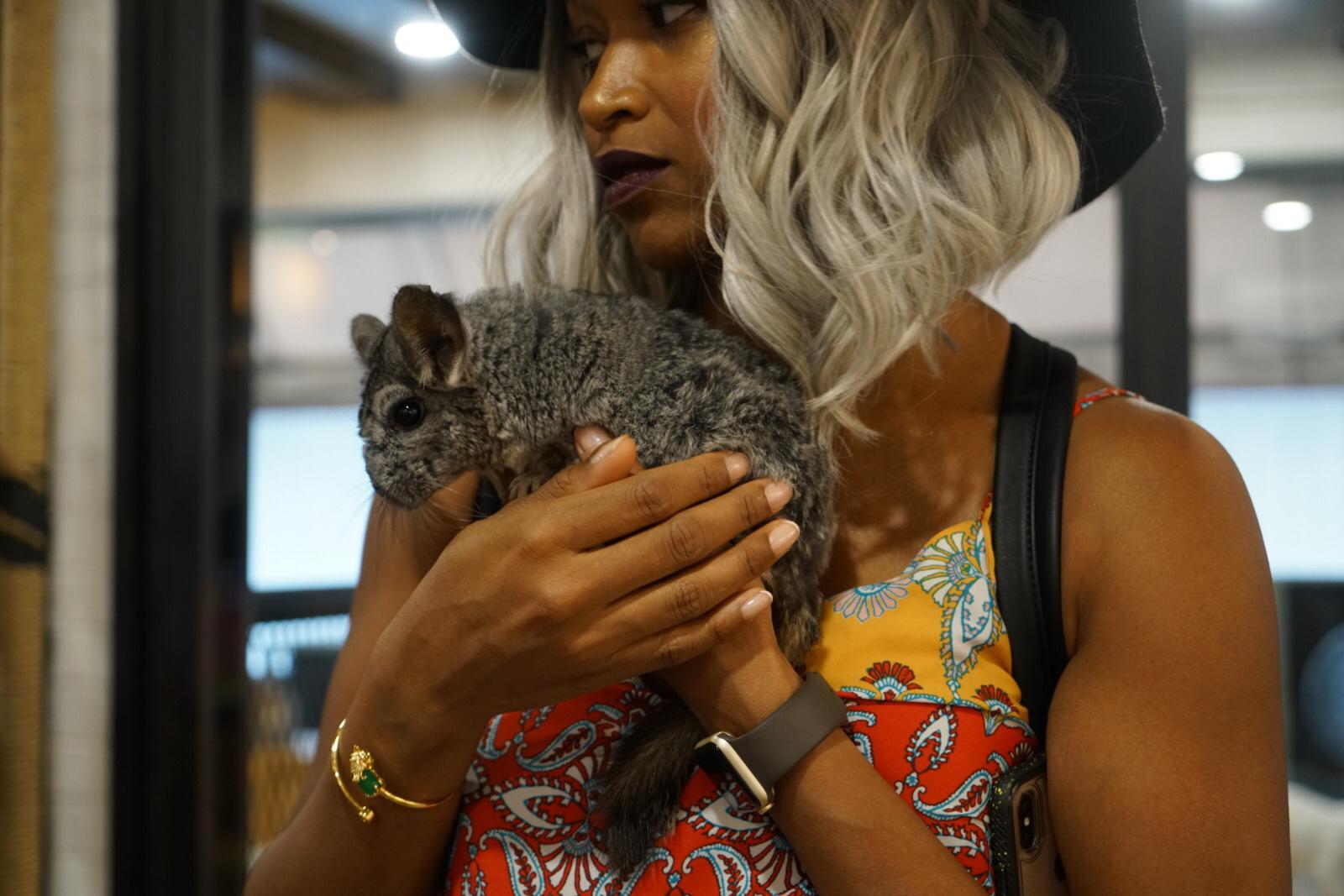
Apart from the loveable AF animals, what immediately struck me was how clean the place was. Unlike several of the other animal cafes I’ve been to in Bangkok, this cafe didn’t have a strong lingering animal scent — you know, the musky kind. The kind that makes you question if you should really be eating or drinking in the vicinity.
I also noticed that the staff is very effective at keeping certain groups of animals together, and strategically placing those groups in different rooms in order to compartmentalize the smell.
Though the cafe is certainly oodles of fun for both visitors and the furry friends who live there, store owner Wachiraporn Arampibulphol told me that, for her, it also serves a higher purpose.
“I want Thai people to better understand [what] it takes to take care of a pet,” says Wachiraporn, who used to import and sell exotic animals at a shop in Chatuchak Market.
For her, Little Zoo Cafe serves as a way for potential exotic pet owners to familiarize themselves with each animal before deciding whether or not they actually want to buy, and raise, one.
“Exotic animals take a lot more patience than a regular pet, like a dog. It takes time for them to adjust to you — and you to it,” she said.
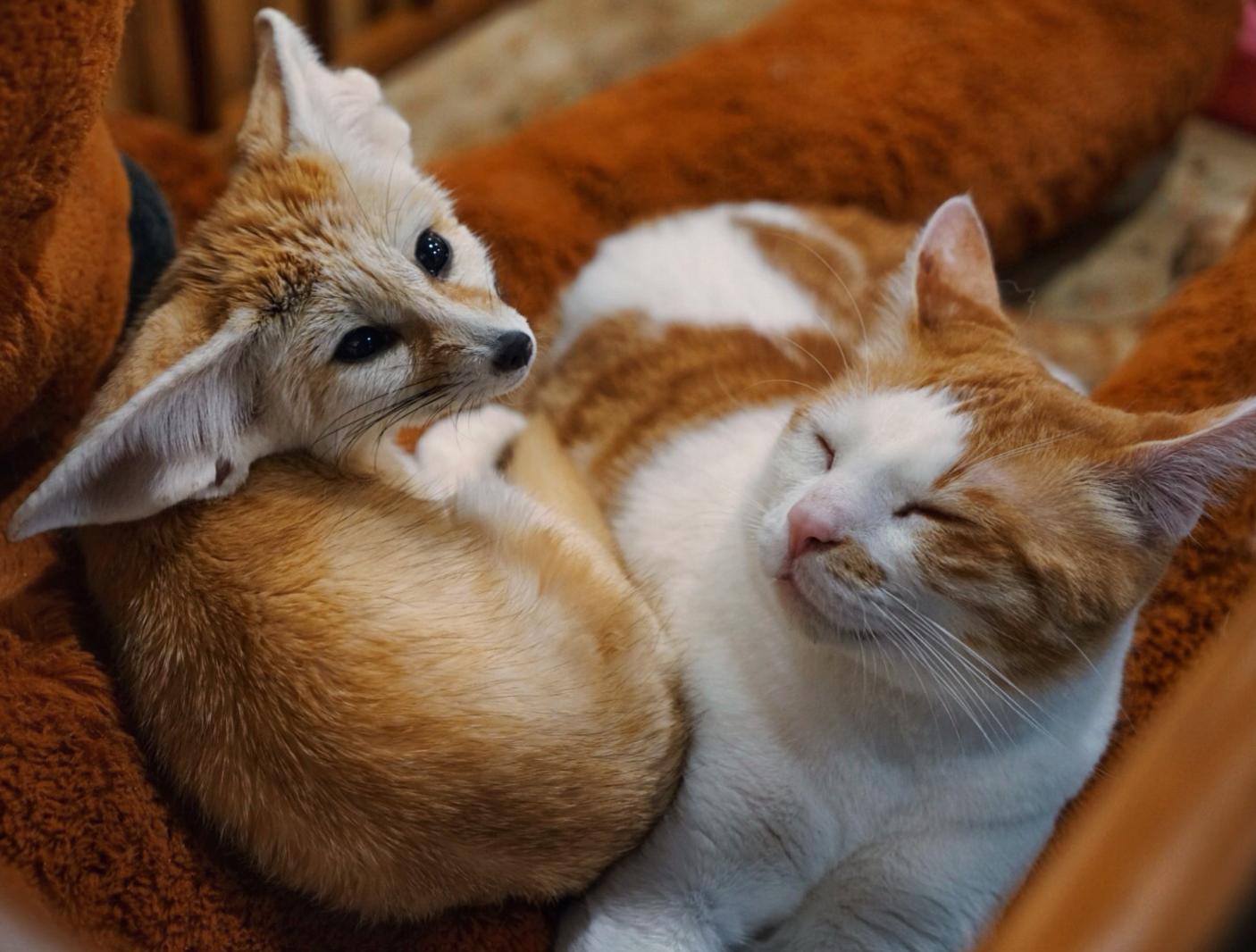
Wachiraporn also said that back when she owned a pet store, many customers would return their pets or mistreat them, sometimes even fatally, after realizing that caring for the animal wasn’t exactly a walk in the park.
That, she said, broke her heart to the point where she eventually closed down the store.
“And it’s not just the exotic animals. For example, we didn’t buy any of our cats [there were at least 5 of them during my visit yesterday]. Pet owners just abandoned them with us,” she said.
Wachiraporn said she started the cafe with the animals the animals that were left in her care after her shop’s closure. Currently, she reportedly owns over 100 animals, with dogs taking the largest cut of that number (at 30 canines).
During our visit to Little Zoo, both the owner and the rest of the staff told us that all the animals under their care are regularly vaccinated with all the shots that each species requires.
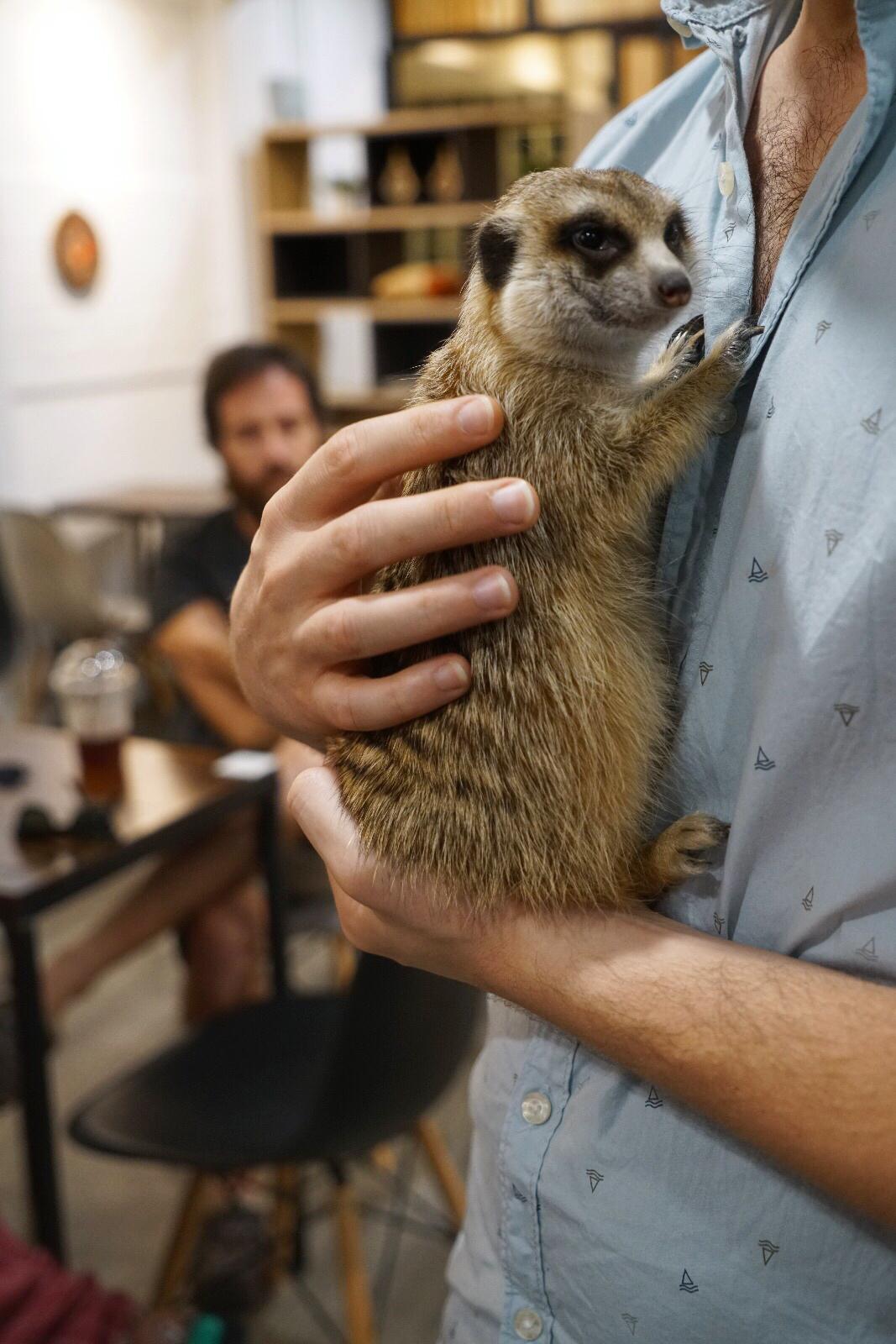
While some of the animals are taken back to Wachiraporn’s house at the end of a long day, many of the exotic animals spend their nights in the cafe on the third floor, where according to an employee who identified himself to us as “Got,” each species sleeps in separate cages.
Wachiraporn claims the exotic animals get “too stressed” when they’re regularly transported.
When asked which animal is the hardest to take care of, Wachiraporn immediately responded “raccoon,” without even a second thought.
“They’re just so hard to control because they’re so smart and they have hands [so they’re good at grabbing things]. One of my raccoons has broken out of every single cage it’s been in,” she said.
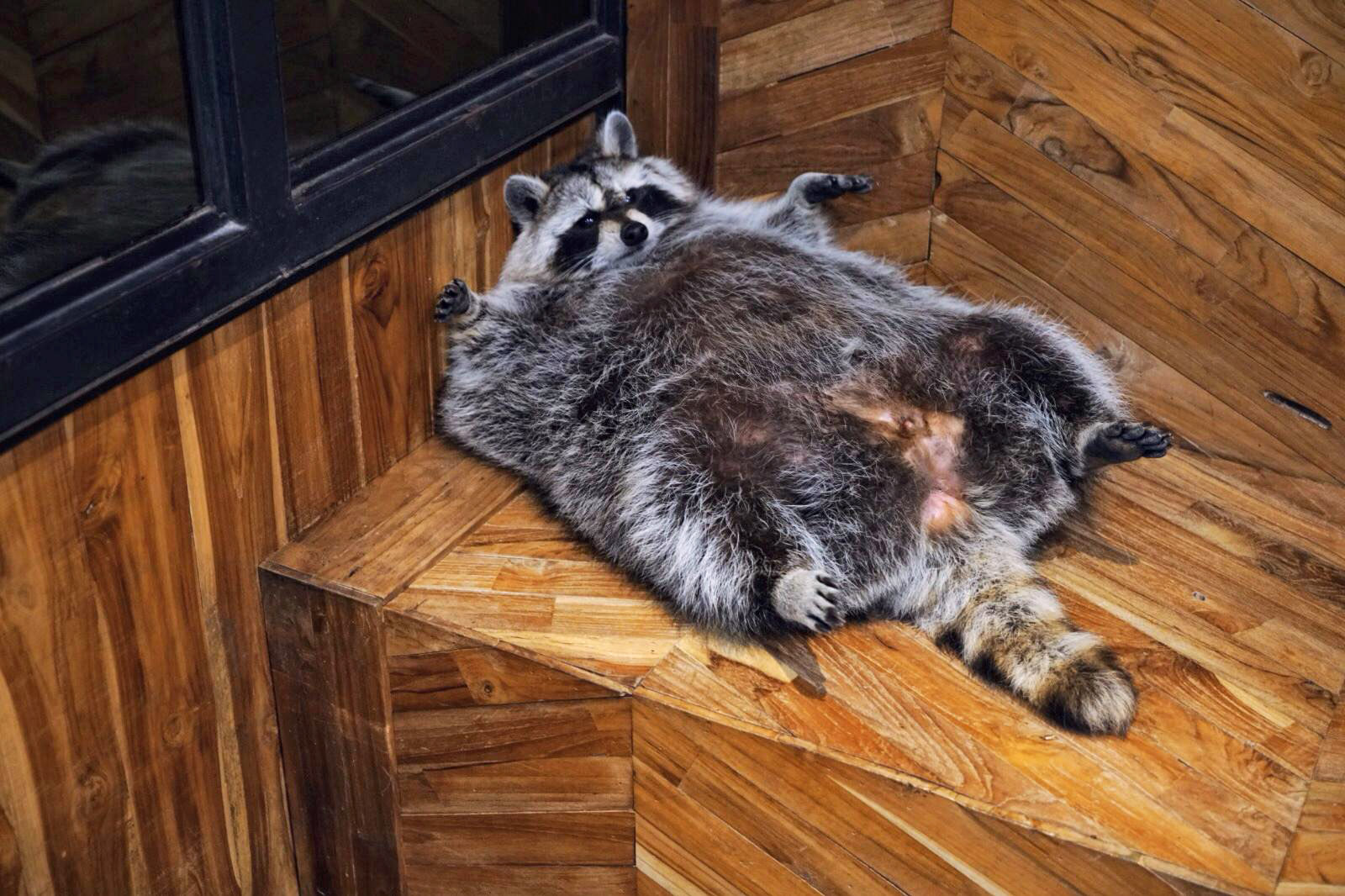
Despite having to regularly clean up a variety of animal poo (only the cats and dogs in the house can be potty trained), Little Zoo’s staffers appear extremely happy with their jobs — an assumption later confirmed by Got.
“I decided to work here because I love animals. We all do,” he said.
Wachiraporn advises for interested exotic pet owners to really think about the commitment it would entail, very carefully.
“Before deciding to buy an exotic animal, make sure you have a lot of time to dedicate to it. They need a lot of attention. They need love,” she told me — reiterating to us that they are much harder to take care of than “regular” pets, particularly in the beginning.
“When they’re left alone, they get sad and lonely, which is why the cafe is so good for them — they get to interact with people all the time. Even when I’m busy, I know they’ll have someone to play with.”
The concept of Little Zoo, however, has raised concerns among animal rights advocates, who assert their belief that wild animals should be living in their natural habitats and without the intervention of human activity.
According to a representative from Wildlife Friends Foundation Thailand who spoke to Coconuts Bangkok on the condition of anonymity, the cafe’s operations are not illegal since none of the animals under its care are endangered or specified for protection under Thailand’s Wildlife Preservation and Protection Act.
Nonetheless, the same representative also expressed her disapproval of cafes of this kind, saying that she believes it glorifies the domestication of exotic animals.
“Wild or exotic animals should live in their natural habitat, not in air-conditioning … The more demand is created, the more potential there is for illegal trading.”
“We wouldn’t be having this conversation if they weren’t imported here in the first place.”
The representative added that there are no current designated sanctuaries for exotic animals that have been abandoned by humans, but also noted that there are many NGOs and wildlife organizations that would support and monitor the welfare of these animals, if notified of the need.
Operating an animal cafe in Thailand requires no license, according to the Bangkok Post. However, some experts believe regulations should be set.
“These café businesses still lack a clear, standardized guideline…” Assoc Prof Parnthep Ratanakorn, dean of Mahidol University’s Faculty of Veterinary Science, said to local media.
“Soon, there will need to be regulations. Places must be registered … These businesses should go on, but they must also be operated with standardized quality. The government will need to set a guideline for all to adhere to,” she said.
Editor’s Note: While the animals we interacted with at Little Zoo appeared to be well cared for and engaged with customers of their own will, we understand the concerns around the concept of such cafés. We have updated the story to address those concerns with additional information including an interview with a wildlife expert.
FIND IT:
Little Zoo Cafe is at 420 Siam Square 11 Alley, Khwaeng Pathum Wan
Khet Pathum Wan, Bangkok
Open 11am to 8pm daily
Reservations: +66 95 057 1010
Customers must call to make a reservation in advance
